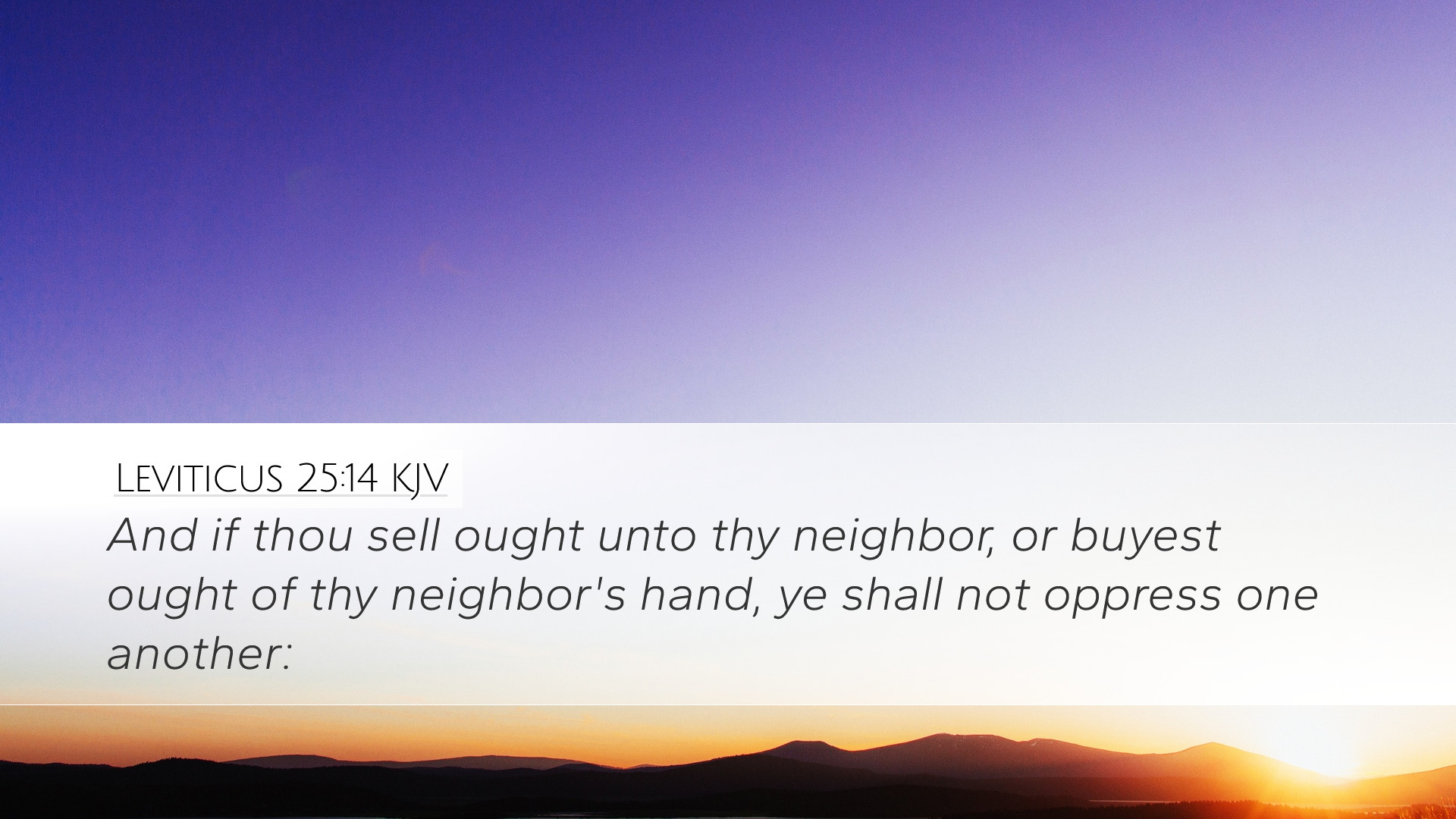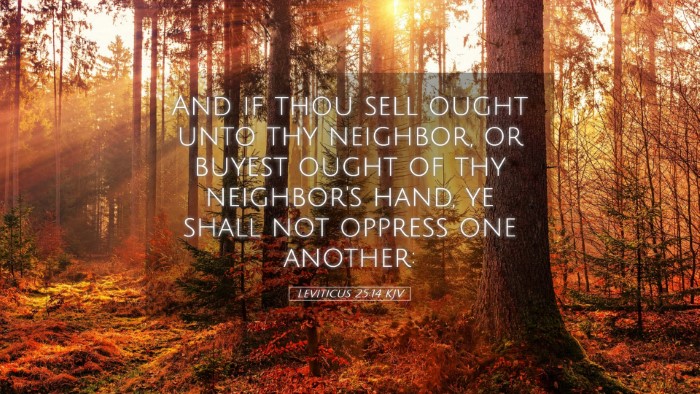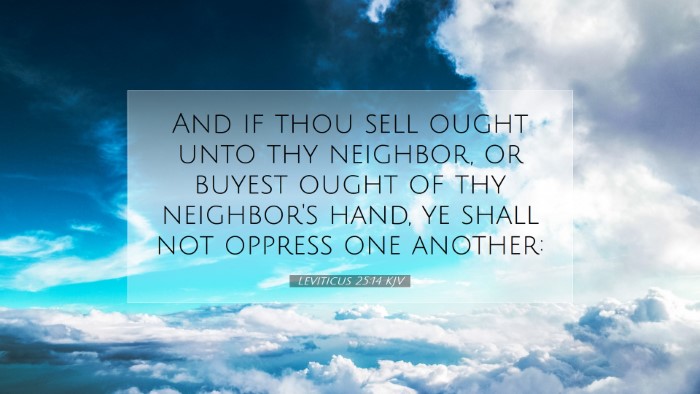Leviticus 25:14 Commentary
Verse Reference: Leviticus 25:14 - "And if you sell anything to your neighbor or buy from your neighbor, you shall not wrong one another."
Context and Background
Leviticus 25 contains divine instructions regarding the Year of Jubilee, which is fundamentally significant in establishing God's principles of justice and mercy within the Israelite community. The chapter emphasizes the importance of relationships, especially those grounded in equity and integrity.
Exegesis of the Verse
This verse addresses the manner in which transactions should be conducted between neighbors. The overarching divine principle is the prohibition of deceitful practices in commerce. This directive underscores the importance of ethical behavior in economic interactions.
Interpretation by Matthew Henry
Matthew Henry emphasizes the moral undergirding of this commandment, asserting that the essence of the law embodies the principle of loving one's neighbor. He argues that each transaction should reflect mutual respect and honesty. Henry illustrates that God desires His people to engage in right conduct that acknowledges their neighbor's rights and needs.
Insights from Albert Barnes
Albert Barnes interprets this verse within the broader context of social justice. He points out that the Israelites, being God's chosen people, were called to a higher standard of ethics in their business dealings. Barnes highlights how this commandment serves to prevent exploitation and promotes fairness amongst brethren. His commentary indicates that such guidelines are crucial for cultivating a harmonious community.
Commentary by Adam Clarke
Adam Clarke notes the practical aspects of this verse, warning against any form of usury or unfair advantage in transactions. He argues that the adherence to this command is vital for maintaining social order and peace among the people of Israel. Clarke’s analysis suggests that the faithful application of this principle would lead to a society characterized by trust and cooperation.
Theological Implications
In examining Leviticus 25:14, several theological themes emerge:
- Social Justice: This verse captures the heart of God's concern for justice and equitable treatment of individuals. It indicates that every economic interaction should be grounded in love and fairness.
- The Nature of True Community: The verse invites believers to envision a community that thrives on mutual respect and ethical behavior, reflecting God's compassion.
- Accountability to God: The mandate that prohibits wronging one another instills a sense of divine accountability in human interactions.
Practical Applications for Today
This verse speaks directly to contemporary issues in ethics, commerce, and relationships. Here are some pertinent applications:
- Integrity in Business: Christians are called to demonstrate integrity in their business practices, reflecting God's holiness in all dealings.
- Restorative Justice: The principles articulated in Leviticus provide a framework for restorative justice, prompting believers to seek reconciliation in their communities.
- Neighborly Love: This verse should challenge believers to see every interaction as an opportunity to express love and care for one another.
Conclusion
Leviticus 25:14 serves as a profound reminder of the ethical obligations that God places upon His people. As we reflect on this verse, we are called to reassess our interpersonal transactions and commit ourselves to a life of honesty, equity, and love. The insights derived from the commentaries of Matthew Henry, Albert Barnes, and Adam Clarke underscore the continuity of God's concern for justice throughout scripture and challenge us to embody these principles in our daily lives.


